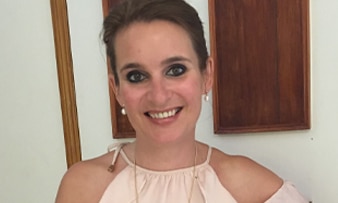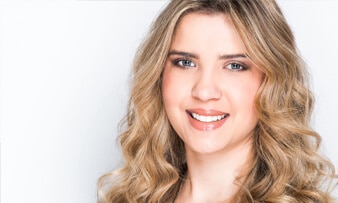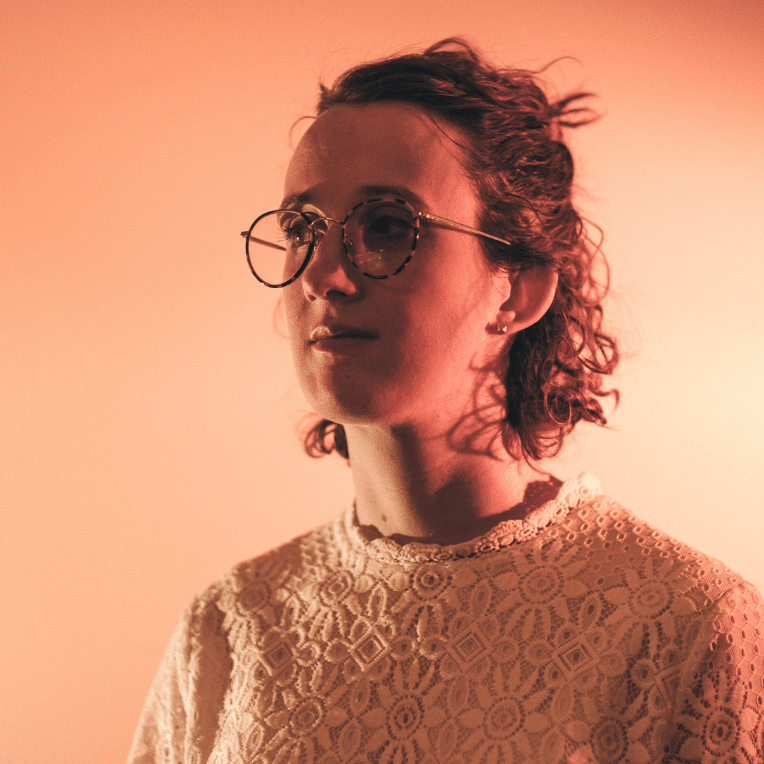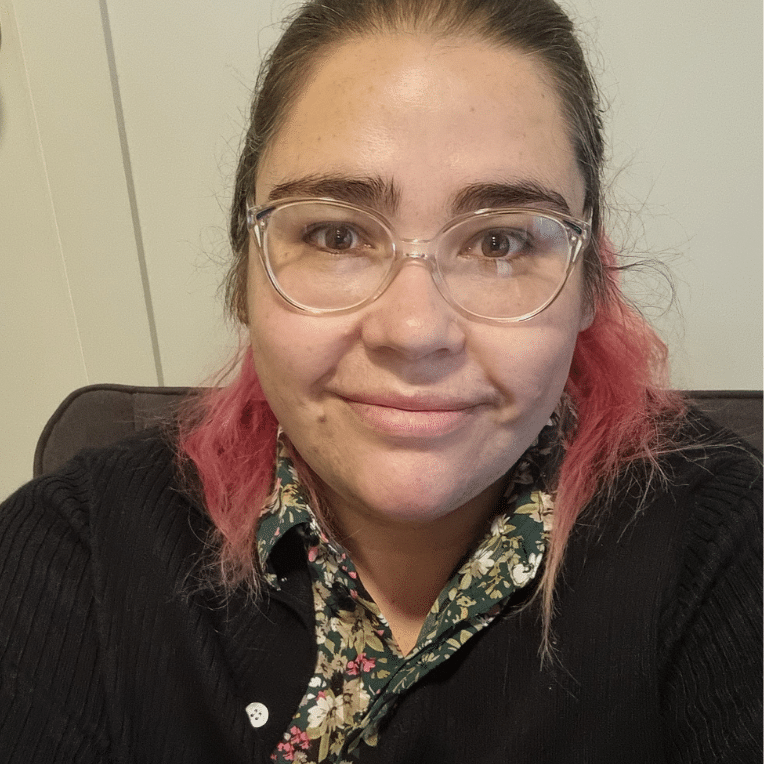Share this episode on
In today’s episode Pete and Tristram chat with Reggie Bird, winner of the third Big Brother and mother to 12-year-old Mia and 10-year-old Lucas who has cystic fibrosis.
In this episode you’ll discover what life has been like raising a child with cystic fibrosis and the struggles being a single mother with a vision impairment and being able to afford the best treatment for her son.
Produced by: Black Me Out Productions
Additional reading
View transcript
Growing Bold and Cystic Fibrosis
Welcome to the Grow Bold with Disability podcast brought to you by Feros Care. A podcast dedicated to smashing stereotypes and talking about the things people living with disability care about most. Happier, bolder, healthier, better connected lives. I’m journalist Pete Tim’s and I’m Tristram Peters. I work for a disability service directory, Clickability and am a wheelchair user living with spinal muscular atrophy.
Today’s episode of Grow Bold with Disability is growing bold and cystic fibrosis, and our guest is Reggie Bird, winner of the third Big Brother and mother to 12 year old Mia and 10 year old Lucas, who has cystic fibrosis.
In this episode, we’ll discover what life has been like raising a child with cystic fibrosis, and the struggle of being able to afford the best treatment for her son as a single mom.
Reggie, welcome to Grow Bold with Disability. Thank you for having me. Reggie, Lucas was born 10 years ago. When did you find out that he had cystic fibrosis? I found out when he was about four weeks old and how you find out is when the babies are born, they take them away and do a heel prick test where they take blood. It was really weird how I found out because they sent a letter in the mail. And there’s a list of about 20 things on the letter saying, “your baby could have one of these things wrong with them. And I’m just like “what the hell?”. And I’m going this is crazy.
I remember I rang the paediatrician and they said we can’t get you in for two weeks to see him. And I said no, I want to see see them as soon as I can. I said you sent me this letter to say something’s wrong with my child, and now I can’t find out what it is. And I remember I rang Dale. He was at work and I was crying and so he rang them up. And we ended up getting in the next day because he was wild for them to send a letter and then say you can’t come and find out what’s wrong for a couple more weeks down the track.
And so we went in and as soon as he said Cystic Fibrosis we just knew. We’ve got a friend that has cystic fibrosis, someone who Dale used to work at the fire station with. One of the firemen. His son Rory has cystic fibrosis, it’s his birthday today actually.
Once we found out, then the hospital got in touch with me and. I didn’t really know a lot about the disease at all.
So tell us a little bit more. What does that mean? What does Cystic Fibrosis mean to you as a mum and what you need to do. With cystic fibrosis there are all different genetic mutations, different strains of CF. Lucas is called Double Delta F R 8, which is probably the worst one you can get because some carry one gene. I think there are over 2000 different kinds of genetics on CF and it is where I carried the gene and Dale carried the gene. And we both didn’t know that we were carrying this faulty gene. And that’s how CF comes about. No one on my side of the family has it and no one on Dale’s side of the family has it either. I couldn’t say I was too shocked because I’ve got really bad Tasmanian genetics as it is
So what’s CF? It’s a lung disease. It affects the whole digestive system. Mucus gets stuck in his lungs. It affects his kidneys, his liver, his pancreas doesn’t work. He has to have medication tablets called crayon to enzymes before he eats food so he can try and digest the food and help keep the food in. If he has any thing with fat in it, and it depends on the fat content as well, you have to measure how much fat is in everything. And then you work out how many tablets he has to take to try and absorb the food. But you know straight away if he’s missed his tablets and he goes and eats something, he ends up on the toilet, with really bad belly aches and it’s awful.
So the mucus sits in their lungs and that is why I have to give him physiotherapy every day, to try and shift that mucus. So I pat him on his back and his chest and give him a good old punch there. I bought a vest for him as well. It’s a machine that is like a little life jacket and that also vibrates the body. But he hates the machine. He just won’t let me put that on him anymore. So might have to sell that actually down the track, because he just doesn’t like it.
So any physical activity, I’ve got a trampoline here and I get him out on the trampoline as well to try and move the mucus. Lots of lots of physical activity is good for them. If you miss physio, you know straight away, you can hear all the gunk and he coughs. So lots of exercise for him.
So what has all this meant for the family? It’s a big adjustment for you guys to make. Look at the beginning when I found out I was just absolutely heart broken when I found out all about the disease. I think he was only a few months old when he had his first operation. I had to go in and they stuck something down into the lungs and had a look around. And so we go to the hospital every month, we go up and he gets his weight checked, his height checked. We see the physiotherapist, the dietitians, the counsellors, we see his doctor.
So it’s an all day process when you go up there and the minute you get there he has to put a mask on and we get put into an isolated room because CF people can’t be near other CF people, so he can’t hang out with anyone else who has got CF. It’s because of cross contamination with bugs that they have in their lungs.
So it is sad in a way because it would be good for him to talk to another CF kid about what he goes through. He has lots of X rays, blood’s, the finger pricks, all that kind of stuff. So it has been over the years traumatic for him having all the needles because he’s just absolutely petrified of needles.
They used to send in the occupational therapist who would come in and try to make it a nicer experience for him. But I just found that made it worse. So what I just do now when he has to have bloods taken, I just take him in there and get them to stick the needle in and get it out as quick as they can.
You’ve got to do all the physio, you’ve got to do all the tablets, he’s gotta take all that stuff. But you also mentioned his diet. That’s a big thing for Lucas. He hasn’t been able to put on much weight and that is also affecting his growth and affected what he can and can’t do.
Yes, massively. It’s been a constant, constant battle to try and get weight on him. So last year he ended up having a nasal gastric tube put in. For the last two years, the doctor has been pushing to get a feeding tube into his stomach. So that’s where you know he’s hooked up to feeds every night. But I’ve just been trying my hardest to get weight on him. And so when he had the nasal gastric tube in, he managed to put on about three kilos. So he had that in for a while. And the minute they pulled it out, he got bloody sick. And then he went downhill and lost all his weight again, you know. His liver levels have been really bad.
So when this new drug Orkambi finally came out to Australia, it came on the PBS, which meant we could have it, but because his liver levels were so high it’s taken over a year for the liver to come back down and be stabilised. We’ve got the new drug now, he’s been on it for three weeks now I think it is. Three weeks or two weeks I’m losing track of all the time because of the school holidays.
So with the new drug, he is really suffering with the side effects poor little bugger. The side effects are just horrid. And he’s managed to have all the side effects possible with with it. There are lots of fevers, headaches, he’s constantly feeling sick and got pains in his belly, rash. All that kind of stuff. But these new drugs are going to help him, it helps break down the mucus in the lungs, and it helps him put on weight.
So fingers crossed this is it’s going to work and he’ll hopefully put on some weight and start growing because he’s so tiny, he’s like is a little runt. So thin, skinny legs, skinny arms. And they’re saying like he’s coming into a crucial time, you know, like when they start coming into puberty. Teen stuff. When whenever that starts. I didn’t start till I was 14 I think, anyway. I don’t know how long it takes the boys to start growing.
He’s obviously shown, like so much resilience through all of this. What are what are some of his hobbies? What does he enjoy doing? He is obsessed with Fortnight at the moment. I could throw the PlayStation in the bin some days, but I use the PlayStation as a bribe. So I say to him, you gotta have a physio because he hates having physio done and you’re not getting on there to have a play until you have your physio. So that’s a good bribe thing. He loves basketball. I take him up to the little court up the road here, and he likes to try and shoot the hoops. He’s so tiny, but he has a go. Gets a few in, he likes doing that. Where we live, in a complex, there are three swimming pools here. So they love going down there for a swim. They love swimming. He loves kicking the soccer bowl. Just all those type of things.
So Reg, what do you think the effects have been on the family financially? Well, withthat Orkambi drug that came out, we couldn’t have it because it was $260,000 a year. Whoa! Yes, So I fought for years. Gosh, I think it was about three or four years fighting to get it onto the PBS. So when that finally happened, you know, instead of paying you know the $260,000 a year it works out to be about $78 all up. Yeah and all the other tablets that he takes, all these other medications are on the PBS, so that helps a lot.
He’s got a health care card but when they turned 16 that they take it off him. So I don’t know what’s going to happen when he turns 16. That puts a lot of burden on many families because it’s so expensive when you don’t have a healthcare card.
But what about also time away from work, for you are actually trying to get full time work and hold it down when you have a young one who’s so sick. That is one of my biggest hurdles in life, trying to get a job with someone who understands that I’m going to be spending months at a time in hospital, you know, weeks at a time with him. So when I was working in the Call Centre a couple of years ago, they were quite good. Lucas was really sick and I had about three months off and they were happy to let me come back no problem at all. At the moment I’m just doing a work from home thing.
But if I was to go and try to get a full time job, it would just be too hard. I couldn’t do it because I’m on my own. I don’t have anyone here to help me. Dale has got a nice partner and she’s there to help him. But all my family’s down in Tassie so I’m just here on my own and so that makes it hard.
And so you don’t get any assistance from the NDIS or government – you’re going on this journey on your own?
I can’t get the NDIS for Lucas and because they don’t class cystic fibrosis as a disability, Right? Even though you gotta have all this medication to keep yourself alive each day and all these hospital trips. You don’t know how long you’re going to live for, because the life expectancy is 37. You see a lot of young ones dying all the time but no, he can’t get the NDIS. They don’t see it as a disability.
How does he go at school Reg having time off and trying to keep up with his peers and so forth. Is he falling behind in class? How does that affect him with the other kids at school? Well, I’ve applied for this year to get tutoring once a week. Because he missed last year about 120 days of school. He is falling behind. So starting next Wednesday he’s going to get before school tutored. It’s an hour before school every Wednesday just so he can keep up with everything.
In the hospital they have a school, but the trouble is, you can’t go into the classroom if there’s another CF person in there. Because they can’t be near each other. And a lot of the time when we are in hospital, he misses out going to school in there because someone’s in there and then you wait for someone to come back and then Lucas has to be taken away to have physio. And then you come back and someone else is in there. So that’s very hard. So hopefully this year with the tutoring, he’ll catch up on things.
You’ve had issues with your own health Reggie. How’s your eyesight at the moment? My eyes are stuffed. They are going OK. I’ve still got nine degrees of central vision left, which is, touch wood, that hasn’t changed in a year. I go to my ophthalmologist every year and they said it’s still sitting at nine degrees. So I’m happy with that because I’ve still got a bit of pinhole vision left, and I can still manage to walk places. I take my cane when I go to the shops or in crowded areas because I don’t see people coming to my left or right. I’ve got no peripheral vision and I don’t have any night vision.
So yes, so it’s a bit of a battle when you go to the supermarket banging into people. But, you know, I’m used to it now, so I just, you know, try and make the most of life while I can, while I can still see.
Reg last time I was talking to you, you were talking about getting a guide dog. Where are we at with that? Look, I’m hopeless. I haven’t even applied for one. It’s a two year waiting list. Oh, you know what happened? I just remembered. I did speak to someone about getting a dog and they said to me because I’d lost my job at the Call Centre. They lost a contract which was with the Red Cross but that didn’t really bother me because I didn’t like it anyway. The lady said to me because I don’t have a full time job I’m not entitled yet to get a dog. And I said, What do you mean? How blind do you have to be to get a dog, you know? And she said, because it’s a working dog, the dog has to go out and go places. I said, I go places, I walk down to the gym and I walk to the shops, I get on buses, you know, But I need to look back into it again. I can’t remember if it was through the seeing eye dogs or the guide dogs can’t remember who it was though. I need to look into that again.
So Reg, what’s the future holding for Lucas? Now he’s on the new drug obviously it’s a little bit early to say. What’s the outlook that doctors are hoping for? Well, because it’s taken so many years for to get the damn drug there’s another one that’s come out called Tricafta. And it’s meant to be better than Orkambi. I reckon we’ll be here fighting again for this Tricafta because around the same price again. They’ve put this massive price on it, so no one can afford it. But the doctors are saying that the next drug coming through is going to be a lot better than the Orkambi so things are looking. As long as he takes his tablets and does his physio and tries to stay healthy. Hopefully, you know he’ll live past 37. So fingers crossed. Fingers crossed.
Reggie, as you know, this podcast is called Grow Bold with disability. Can you tell us what living a bold life means to you? Going to the pub, having a few beers. I like going out and having a heaven of few beers with my friends. And look, you know, I’ve joined back at the gym, but I haven’t really been. I think you just got to make the most of everything. Live each day as it’s your last day. And that’s how I see it. Sometimes I probably shouldn’t think like that. You know, I think I should be saving up a bit for a rainy day. But I’d just like to live in the moment and make the most of it. If that makes any sense?
Reg, you are definitely one of a kind. Thank you so much for joining us here on Grow Bold with Disability Podcast brought to you by Feros Care. And please say hello to Lucas and Mia for us. Yeah, well, do thanks so much for having me on.
And listeners could find out more about Reggie and all these other great things to do a cystic fibrosis in the links on today’s episode show notes. Thanks again, Reg. Thank you for listening.
And if you have enjoyed today’s episode make sure you subscribe to the podcast Grow bold with disability. And if you like what you heard and please take a few moments to pop over iTunes and give our podcast a quick rating so we can continue these conversations and encourage people to grow bold.
This podcast is brought to you by Feros Care a people care organisation committed to helping people live bolder. We call it growing boldly and for over 25 years Feros has been making it real for both older Australians and those living with disability. Find out more, head over to FerosCare.com.au
View podcast disclaimer
The content and views discussed in this podcast series are those of the individuals involved. They are not necessarily condoned by, or, are the views of Feros Care or its employees.
Our Guest






